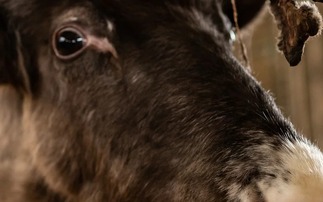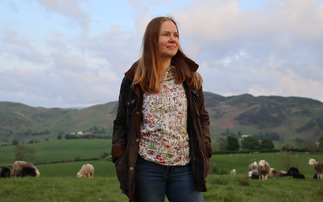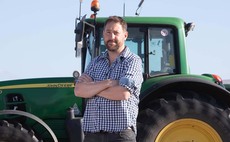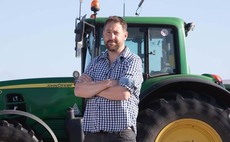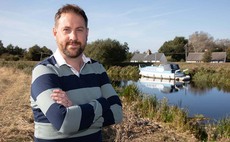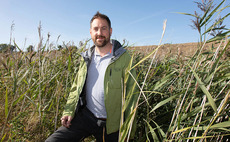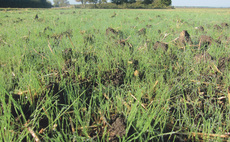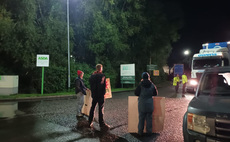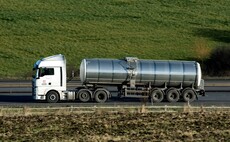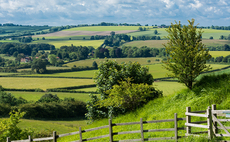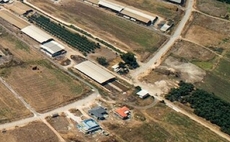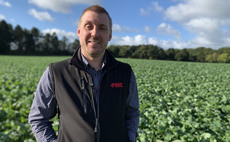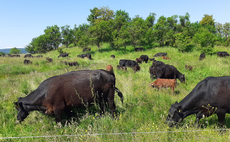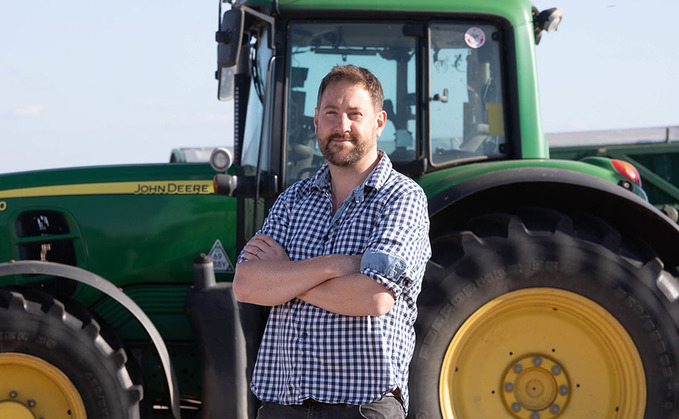
Let me tell you a story. It is old and has been retold many times.
This story is written not in words but within a landscape. It is found in an eye-widening horizon, in deep wet soils and slow dark waterways.
Let me tell you about the Fens. This is where I farm. In the lowest of low lands. This is where the last towering ice sheets were melted by warming southern winds.
This is where the last encircled Saxon fighters resisted their eventual Norman conquest. The story of the Fens is of ebb and flow; a shifting land-sea where whatever settles is destined to be moved on.
Today our landscape tells its own tale. God may have made the mountains, but it was people who drained the Fens.
What came before was a vast seasonal wetland, riven with life and covered by endless commons where Fen folk prospered by fishing, hunting foul, grazing and cropping.
In his excellent book 'Imperial Mud', James Boyce tells how these rich, productive wetlands were seized by nobles and adventurers.
Brandishing the Royal Warrant of an absolute monarch, Lord Bedford's gang enclosed sweeping tracts of so-called ‘wasteland' for private profit. There was no local consent and long-running battles were fought and lost. The tide had turned again.
A new fenland economy grew in place of these vanquished commoners. The waters were channelled and the rich soils turned to agricultural ends. The Fens became Britain's bread basket, its veg box, salad dish and sugar bowl. Today these fenland farms are the keystone of our food security.
Someone once said that history does not repeat, but sometimes it does rhyme. As a fourth generation farmer, I can see the tide turning yet again.
In my grandfather's day 200 souls lived and worked among our fields. Our village sported its own school, two pubs, a shop, post office, church and two chapels. All these are now gone.
Few who now live in those converted buildings, or in neighbouring towns, have links to the land. Landscape is scenery. Flat scenery, too.
That scenery is the backdrop to a new rushing tide. Local farms are out. Housing estates are in. Rewilding is in. Solar farms are in. Non governmental organisations and developers alike brandish the policy pincers of HM Government.
In his Booker Prize winning novel, Graham Swift christened our Fens 'Waterland'. Sweaty developers, overheard on local trains, dismiss it all as 'white land'. White land is the space on maps between other things, where 'there is nothing', where 'we can do what we like'.
This is not to claim all the moral high ground for farming. We have over-intensified and fell into commodity production at the lowest cost. In the past we edged out the nature on which we ultimately rely.
In the Fens, our drained peaty soils emit carbon dioxide, contributing to the very sea level rises which now threaten us.
My point is that, for once, we have a choice. Changes need not be imposed upon us from outside. Farmers everywhere should feel challenged, not threatened, by these encroaching agendas.
Like King Canute, we cannot hold back change. But, if we take ownership of the problems, we can then shape and claim the solutions too. The best defence for farming is to stop being defensive.
In that spirit fenland farmers now lead an organisation (Fenland SOIL) looking at practical solutions to CO2 emissions. We work alongside environmental NGOs, local governments and scientists - seeking common understanding and shared solutions.
In a still wider field, farmers are involved in a collaborative project to create a land use framework for Cambridgeshire.
There is no reason why what farmers are starting to do in the Fens cannot also happen across other farmed landscapes.
To misquote some words from the great Robbie Burns:
"Be farmers still to farming true,
Among ourselves united;
For never but with farmers hands
Shall farming's wrongs be righted."












